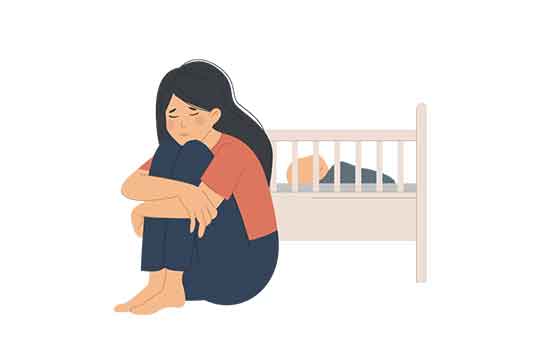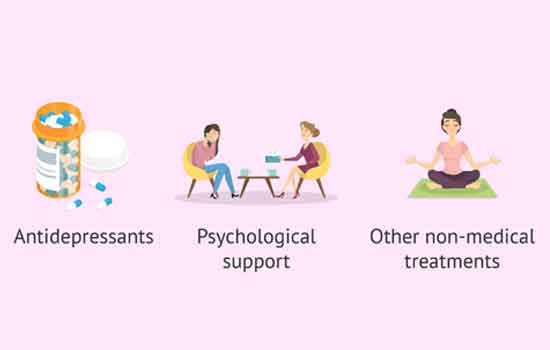Postpartum Blues
Women go through a lot of physical, behavioral, and psychological changes during pregnancy and after childbirth. Two of the most common psychological problems faced by new moms are 1. postpartum blues and 2. postnatal depression. Hence, most of the new mothers go through these problems. It is quite normal to undergo these symptoms. They however often go away within a few weeks after childbirth. Thus, let’s have a detailed look at both postpartum blues and postnatal depression. We will also discuss problems and everything essential related to them.
What is postpartum blues?
Postpartum blues refer to various psychological emotions that women feel after giving birth to a child. These emotions include feelings of sadness, worries, and tiredness. These symptoms usually arise after 2-3 days of childbirth. They may last up to 2 weeks. If you experience symptoms even after 2 weeks, then it is highly recommended to contact a doctor. Some of the most common symptoms of postpartum blues or baby blues include:
- Sorrow
- Cry Cycles
- Mood Swings
- Bad Temper
- Insomnia
- Appetite
- Poor Concentration
- Cloudy Decision-Making
- Overwhelming Feelings
Top tips to get rid of postpartum blues
Here are some of the top tips to get rid of postpartum blues.
- Sleep properly for 8 hours daily.
- Share your feelings with your loved ones and ask for their help.
- Spend some time with yourself by going out once in a while.
- Join a support group of new mothers to feel better and learn more about motherhood.
- Further, avoid alcohol, smoking, drugs, and medicine overuse to prevent symptoms from worsening.
What is postnatal depression?

Postnatal depression is an even worse psychological condition than postpartum blues. The postnatal depression symptoms are far stronger and they may last for a very long time. It is also experienced by new mothers after childbirth due to the physical and psychological changes. The women who experience the signs of postnatal depression should get a checkup. Also, if ignored or left untreated, this depression problem can prove to be life-threatening. In some rare cases, women also tend to experience an extreme emotional disorder called postpartum psychosis.
Signs of postnatal depression
Moving on, here are some of the most commonly experienced signs of postnatal depression are listed below.
- Extreme Mood Swings
- Severe Cry Cycles
- Suicidal Thoughts
- Impatience
- Difficulty In Connecting Emotionally With The Newborn
- Isolating Oneself
- Increased Or Decreased Appetite
- Insomnia Or Oversleep
- Bad Temper
- Guilty Feelings
- Feeling Worthless
- Extreme Anxiety
- Poor Concentration
- Foggy Judgment
- Loss Of Interest In Everything You Like
Postpartum depression test
The postpartum depression test includes a series of different tests conducted by the doctor. Firstly, a suspected patient is asked to fill a depression-screening questionnaire. This is to make sure that the patient is not suffering from baby blues. After that, the doctor may ask questions about psychological symptoms. This includes mood swings, depression, and despair, etc. Also, patients are asked if they feel the same excitement in their favorites chores like before or not.
The doctors will ask if the patients are experiencing various physical and psychological symptoms. The psychological symptoms include
poor concentration,
poor decision-making,
anxiety, guilt feelings,
poor confidence,
self-criticism, and
suicidal thoughts, etc.
The physical symptoms include insomnia, oversleep, tiredness, and the urge to avoid physical activities.
The more severe symptoms a patient is experiencing, the more severe is the depression stage. Hence, if a new mother is experiencing suicidal thoughts or thoughts of harming the newborn. It’s immediately declared as severe postpartum depression. Apart from these questions, doctors may also do some blood tests. This is done to check the hormonal levels and other underlying health problems. In severe cases, new mothers are often hospitalized to get properly treated by psychological medical professionals.




